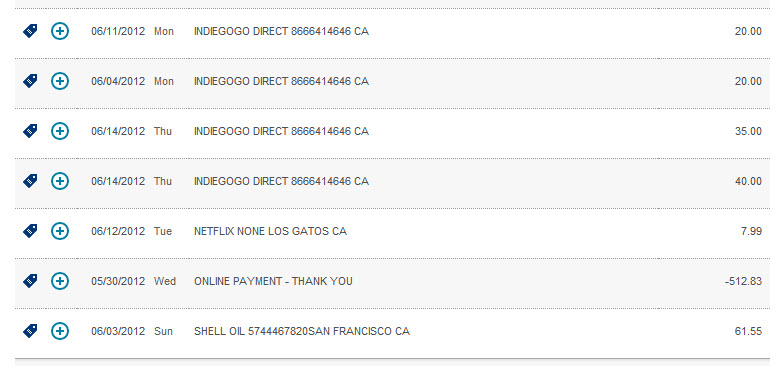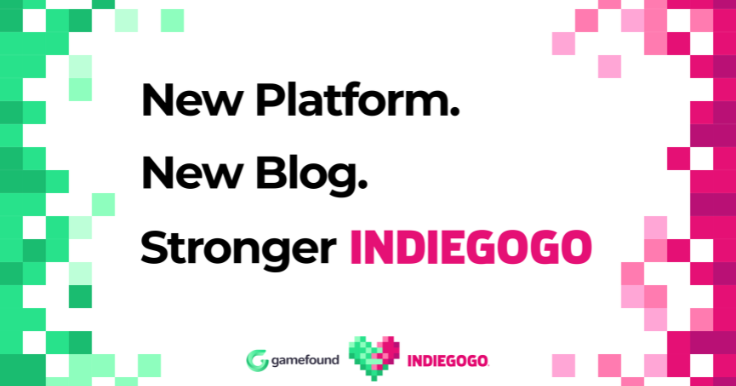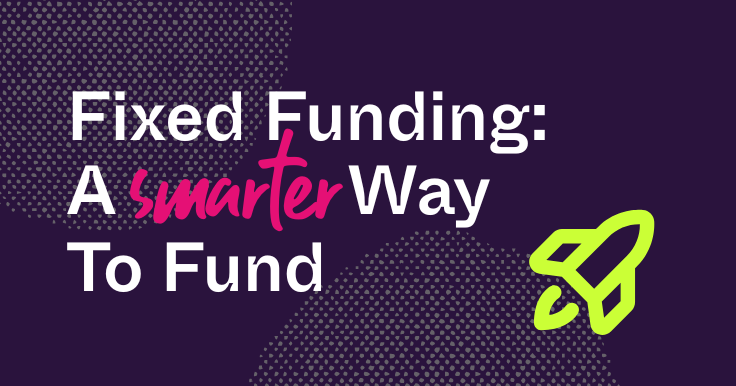At one of our recent meetups, some of the Indiegogo team met a woman who has donated to a number of campaigns, and I decided to sit down with her and pick her brain to see what goes through the mind of a repeat contributor. Below is our conversation, which includes some really great insights for both campaigners and prospective contributors!
Andrew: To start things off—to date, how many campaigns have you contribute to?
Rebecca: 8 projects total.
Andrew: And what would you call yourself?
Rebecca: I’m a serial funder.
Andrew: How did you first find out about Indiegogo?
Rebecca: A friend of mine started a campaign. She was planning to do a bunch of podcasts and webcasts based around motivating millennials—specifically college students—to do more than think. She hit me up personally and said, “Rebecca, I know you’re on the same page with me on this one, please just think about giving something.” So I gave $30. Not a ton, but more than the smallest.
From there, I was subscribed to Indiegogo’s weekly newsletter list—and for awhile, I really ignored them—but one day I opened one, and one of the campaigns in it was called Birmingham to Beijing—students from a low income background in rural Alabama had gotten accepted into this program for the summer in Beijing, and they were trying to raise money to go there.
I was really lucky that I got to study abroad a lot—starting when I was 16 and then a bunch through college as well. And it’s probably the single biggest thing that has made me into the person I am today—the way I think, what I do—and so it is something that I want for everyone, that experience. I think anyone who wants that experience should be able to have it.
Andrew: In general, would you say your contribution habits fall along the lines of your passions?
Rebecca: That’s definitely true. I would say that pretty much everything I’ve given money to has been related to study abroad, giving students the opportunity to get out of whatever environment they’re in, and experience something new.
Andrew: How do you decide how much money to contribute?
Rebecca: I would say that it’s a balance between the coolness of the perk and its price. When I find a cause I’m excited to contribute to, I’ll read through the perks and find that balance. I don’t think I’ve given anymore than $30 or $40 to a particular campaign. I don’t make a ton of money, so that size of contribution is actually kind of big for me.
At the end of May this year, I made a decision that I wasn’t going to buy any new clothes for six months. So it was a matter of saying $25 could buy me X, Y, or Z in my life, but it could also make a significantly cooler impact than me buying another pair of shoes.
Andrew: So it’s more like reallocating your pre-existing budget, rather than creating a new expense?
Rebecca: Exactly.
Andrew: You’ve spoken about the allure of perks and your own personal passion for studying abroad—what’s that intangible experience of contributing? That feeling when you click and make a contribution final?
Rebecca: I feel awesome. I have a lot of friends at non-profits, who, at one time or another, are usually in the process of a fundraiser for their organizations. And I would say that I actually give to Indiegogo campaigns more often than I do to my friends’ non-profits. Partially because I’m more passionate about it, but also because I know there’s something coming back to me. I’m going to get that postcard or whatever the perk is.
I contributed to this one campaign where the campaigner’s mom made soap—and I donated $25 and they sent me a bar of soap. I didn’t have to buy bathroom soap for a month, that’s awesome! Even my roommates will benefit from that one. So there is this aspect of contributing to a campaign as not being a one-way transaction.
I also got a letter from the kids in Birmingham that was handwritten, thanking me for my contribution. And I was like, ‘OH MY GOD THIS IS AWESOME!’ I was showing my roommate, ‘Look look what I got in the mail!’
Andrew: Say you’re sitting in front of a big group of campaigners, as a contributor, what your one big piece of advice be to them?
Rebecca: Have someone proofread your stuff. There are ones where it’s short, it’s tight, you can tell that they put a lot of time into it. And then there’s ones where people are just rambling on. And it’s not really going anywhere, very disparate, no clear structure.
Also, and this is a personal preference, but it helps to break down your costs—to show me exactly where all of this money is going to. When I see a budget, I know that you’re not just doing this by the seat of your pants—you’re doing this with thought behind it, and you’ve planned and you’ve budgeted, and I know that my money, when I give it to you, is not going to waste.
Andrew: Do you think that campaigners and contributors are two different types of people?
Rebecca: Ya, I think so.
Andrew: What would be the profile of a contributor?
Rebecca: I think they’re people who can identify a cool idea and appreciate it, but don’t have the time to go out and start a campaign themselves. They want to see the idea succeed but don’t have the bandwidth—time, money—to dedicate to making the idea succeed on their own.
It’s a way of being involved without having to start from scratch. It’s an easy way of taking a small step to be a part of something you’re passionate about. It can be sort of like writing on a friend’s Facebook wall on their birthday. It’s definitely more passive, but you inevitably feel good about having remembered, having done it, and the other person is happy you thought of them.
To our readers—are you a serial contributor? Let us know in the comments what keeps you coming back!




You must be logged in to post a comment.